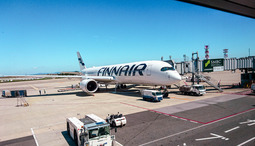- On
- 6 Jul 2022
- Reading time
- 2 minutes
In a world of seemingly endless choices, it can sometimes be hard to separate the lemons from the plums. Increasingly, people are putting their trust in the wisdom of the crowd to guide where they spend their money, especially online.
Sites like the online commerce juggernaut Amazon and leading auction site eBay, rely heavily on customer feedback to promote their products. Previously, the majority of retail markets were dominated by only a few select brands and over time they could work hard to strengthen their reputation – but in a globalised world, competition comes from much further afield and the public need a new barometer to verify the quality of products from brands they have not previously encountered.
Since Amazon and eBay carry a great many products, their customer reviews section is important for many shoppers – with the option to sort search results by the feedback a product has received.
Danish company BritainReviews has expanded the same idea to all online businesses; customers can leave reports on the experiences they had, and the site receives over a million posts each month.
Reviews and the Travel Industry
It’s not just the retail sector where reviews have become significant, the travel industry is now more reliant than ever on reviews. When visiting new destinations, it’s common for people to firstly, post to their social media, asking if anyone has been to the place before and if they can offer any tips for hotels, activities, and restaurants, and secondly to take to a review site for recommendations.
Such is the power of having a result appear on the first page and, even more so, the top spot on sites like TripAdvisor can literally be the making or the breaking of many people’s businesses. A poll found that 84% of people trust online reviews as much as they trust the opinions of their friends and 91% of people regularly read them.
The Negative Side of Review Culture
Of course, companies are wise to the impact the review system has, so naturally have begun to pay for positive critiques – which has in itself become a kind of modern means of advertising. There are similarities that can be drawn between review sites and influencer culture, with people trusting the opinion of a personality they have grown to trust, over the polished marketing material communicated by the business themselves.
Vice reporter Oobah Butler highlighted the fragility of the system by manipulating fake reviews to promote his hoax restaurant The Shed at Dulwich as the top-rated restaurant in London spot on the Tripadvisor platform. The icing on the cake was that The Shed at Dulwich didn’t even exist.
And that’s not the only way reviews can be exploited – someone with malicious intent can besmirch the name of an establishment by publishing fabricated reviews, perhaps an ex-employee or competitor. Sites like booking.com, Expedia, and even Facebook and Google need to work relentlessly to verify how genuine positive, as well as negative user reviews, are.
Reviews have become a powerful and influential component of the modern marketing structure. A predominantly positive score and travel companies are likely to receive more bookings, but negative reviews will discourage potential customers – putting some of the power back into the hands of the public but not without its drawbacks.








